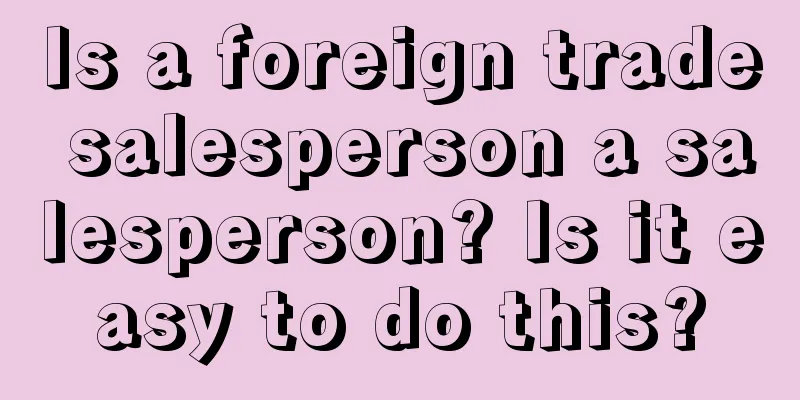The co-branded dolls worth more than ten thousand yuan were snapped up, how come Jellycat became "unreplicable"?

This year on 520, The Beast and Jellycat’s joint campaign focuses on the word “expensive”: expensive + expensive = more expensive. Although it is just a normal addition of styles, the original price of some dolls is only two or three hundred yuan, but once the halo of the joint brand is added, the price jumps to 520 yuan, and the price of some joint brands even soars to more than 10,000 yuan. It is such a simple joint name that seems to have no technical content, but netizens rushed to buy it. Many people sighed while buying it: "It's really not expensive now. Now it costs 200 yuan more to buy it alone." On social media, various strategies for grabbing orders and calls for "Can this event be opened in more cities?" are overwhelming, and many netizens are eager to be "cheated." Spending a few hundred dollars or even tens of thousands of dollars to buy a doll may sound a bit outrageous, but it makes sense when it comes to Jellycat. After all, over the years, young people have quietly reached a consensus: Jellycat is really expensive and very popular . Nowadays, the prices of most dolls on the market are concentrated in the tens or dozens of yuan, but the prices of Jellycat range from 99 yuan to 7999 yuan. There are many popular models, and they are hard to get. Many popular products are in short supply. Popular models of popular dolls such as Barcelo Bear, Bunny Rabbit, and Eggplant have been out of stock for a long time. Jellycat's products have even been given more investment value, and the emergence of a large number of purchasing agents and the multiple premium products on second-hand platforms are reflections of this. But from a marketing perspective, Jellycat can be called a slow marketing brand. Whether it is an e-commerce platform or social media, it does not have a strong presence in official promotions and marketing links. While other brands are still spending huge amounts of money on marketing, Jellycat has already taken the traffic express and is far ahead. As for the traffic dividend, Jellycat can get it all at once by relying on "tap water". Jellycat, positioned as a "children's comfort toy", has now become the spiritual sustenance of adults. Many netizens "raise" it as a "baby" or family member. Some even need to quit using it because they like it too much. The Douban group "Jellycat Quit Mutual Aid Group" currently has more than 60,000 users. During last year's "Double 11" period, Jellycat surpassed Disney to become the number one in sales of plush fabric products, with an average transaction price of 465 yuan. Compared with the plush toy market where the average price is still 20-30 yuan, Jellycat, with an average price of thousands of yuan, does not rely on traditional IP bundling, nor does it have the blessing of the popularity of the second dimension and strong marketing. What's more outrageous is that the higher the price, the better it sells. How does it capture young people? If it doesn't "suck" at low prices, how can it sell to the top of the plush toy category? 1. The high-priced Jelly Cat, countless young people are crazy about it“Why isn’t there this Beast event in my city?” “Will I get a Jellycat bag for free if I buy something?” In the Weibo comment section of the official announcement of the joint venture between The Beast and Jellycat, most of the discussions were about Jellycat dolls. In comparison, The Beast bouquets under the joint venture seemed to be neglected. Looking at the social platforms again, "I don't want to talk to people who don't have a Jellycat anymore." Owning a Jellycat of your own has become a small goal for many people, and has also become a spiritual baptism for many young people. Many collectors are not satisfied with just buying a single Jellycat plush toy, but buy a whole family. Their homes are filled with all kinds of Jellycats, as if every purchase is not just adding a doll, but welcoming a new family member. More commonly, many netizens treat it as a "cub" or a family member to "raise". There are quite a few people who "raise cubs". Many people take Jellycat as a "companion" wherever they go, whether it is an everyday coffee shop, a mountain top during a hiking trip, or even iconic places abroad, these plush toys can be found everywhere. Along with the popularity on social platforms is the growing market for plush toys . Plush toys have now become common commodities in offline retail stores of trendy toy collection brands including TOP TOY, X11, and Jiumu Sundry Store. The entire plush toy category has a dedicated display area. Even Pop Mart, which has pioneered the trendy toy track, has tried to enter the plush toy track. From the perspective of the entire toy industry, there has always been a saying that "toys have no brands, only IPs". The prosperity of IP drives the market, and the toy industry regards brand IP as the only way to long-term operation. From toy giants like Lego to Pop Mart and Kayou, all are using the influence of IP to expand their market coverage. The plush toy market is not far behind, with shelves of MINISO, X11, and Jiumu Zawushe filled with popular IPs such as "Disney Strawberry Bear", "Sanrio", "Line Dog", and "Loppy". In terms of customer promotion methods, many toy brands are attracting customers’ attention through online interactions and content marketing. Some brands choose to cooperate with influencers with high adaptability, and even use influencer distribution as the mainstream sales channel. For example, in September last year, Pop Mart launched various short videos featuring LABUBU to celebrate the opening of its first city park, which quickly spread widely on social media; and for the baby toy market, Jollybaby opened 6 self-operated live broadcast rooms on Douyin, and cooperated with vertical bloggers such as "Make Friends", "Dongfang Selection" and vertical Internet celebrities such as Zhou Zhou and "Daddy Chongge"... The innovation and diversity of offline marketing activities are also increasing. From unique advertising promotions to carefully planned events, major plush toy brands are stepping up their efforts to attract customers. Pop-up stores held by Line Puppy, Loopy, Chiikawa, etc. have all enjoyed top-tier treatment, with stores surrounded by enthusiastic consumers; Pop Mart's THE MONSTERS plush series not only launched an exhibition-style theme block, but also opened a special Beijing city limit, allowing the image of LABUBU to appear around Beijing Drum Tower, waiting for fans to encounter and check in. Unlike many brands that adopt active marketing strategies, Jellycat has taken a less "hard-working" marketing path. Whether on e-commerce platforms or social media, its official promotion and marketing links are not very strong, making it a typical slow-marketing brand . In China, Jellycat does not have a physical store directly operated by the brand, but sells its products through e-commerce platforms and in cooperation with third-party distributors such as maternity and baby stores, bookstores and toy stores. Despite this, when other brands are still investing heavily in joint cooperation and attracting traffic, Jellycat often simply displays its products by posting a link, but it is far ahead in the market in an easy way. Jellycat's success is partly due to the spontaneous sharing of its loyal fans. Now Jellycat has caught the traffic express train. Discussions about Jellycat on social platforms have never stopped in the past two years. The number of Jellycat-related notes on Xiaohongshu has exceeded 500,000+. The huge traffic has led to explosive sales. What subverts people's stereotypes is that adults are now the real main consumers of plush toys. Behind the soaring sales is a business that uses emotions to drive traffic. Jellycat has a lot of “crazy” products, and young people who like Jellycat are also “going crazy”. For example, dolls like afro penguins and various strange-looking potted creatures quickly became popular on the Internet with their weird yet cute appearance. The exquisite "ugly dolls" are very consistent with the mental state of today's young people who want to go crazy every day. Jellycat is keen on drawing big dark circles under the eyes of eggplants, and adding words such as "Just a working eggplant", "Sad eggplant", "I'm not sleepy", etc. Jellycat has become the best Internet "mouth substitute" for young people and the "spokesperson" for young people's emotional expression. Although it may seem "crazy" on the surface, the real charm of Jellycat lies in the companionship and healing effect it provides . This healing feeling is reflected in every product detail. Each Jellycat doll adopts the iconic doll eyes and bracket-shaped smile, coupled with the sign of safety and applicability and a soft texture that makes people want to touch and hug, it seems to be born with a rich "emotional concentration". In Jellycat's official introduction, plush toys are given personalized "fur friends" settings, and each doll has its own personality and background story. For example, Barcelo Bear is described as the "perfect bedtime companion", while other characters such as the "Bear Knight" protect children at night, and the little bear turns into a warrior to drive away nightmares. These settings enhance the real vitality and emotional value of the dolls. On social platforms, many adults shared their nights sleeping with these stuffed toys and the healing they received. According to Zhimeng Consulting's "2024 China Consumer Trend Report", 64% of consumers attach more importance to spiritual consumption, especially young consumers who are increasingly concerned about "spiritual self-satisfaction". It is not difficult to understand why Jellycat has become so popular at a time when young people in China often vent their emotions on social networks. The sense of companionship and self-immersion are also resonated and amplified on social media. The doll market has seized the dividend of the times in the name of healing. Whether it is IKEA's Great Shark, Disney's Lingina Bell, Jellycat, or the recently popular Chiikawa, they have all accurately hit the hearts of this generation of young people by sniping at the "emotional value" of young people. It does not rely on joint collaborations with big brands, nor does it rely on hype gimmicks. Even its prices are far higher than the general market, but it can still attract young people to willingly queue up in shopping malls to grab them. 2. Jellyfish remain at the top as consumption downgradesToday, when the banner of anti-consumerism is flying high, it seems that only Jellycat dares to raise its prices year after year, but its popularity "only increases and never decreases". More importantly, its fluctuations are not ups and downs, but often the increase is uncertain. In the first half of 2023 alone, the price of Jellycat's popular products increased by as much as 20%, and many of its daily products also increased by around 10%. The price increase did not affect sales at all. During the "Double 11" shopping festival in 2023, Jellycat's sales exceeded Disney's, becoming the sales champion of the plush fabric category. By March of this year, plush fabric toys were still selling well on the Tmall platform. Among the different price ranges, sales of products priced above 400 yuan accounted for 14.1%, showing the largest increase. Among the best-selling products in this category, Jellycat's "Pirate Dog" plush toy ranked first in sales, with an average transaction price of 2,759 yuan. It is worth noting that in the market, there are many categories of plush toys, and the prices range from low to high. The current obvious trend is an overall tilt towards low prices, and currently affordable dolls occupy the mainstream of the market . For example, Disney is able to provide relatively low-priced plush toys through mass production and extensive retail distribution channels. The price of a small Disney plush toy is only one or two hundred yuan. Pop Mart, which started out by selling blind boxes, is also creating a "plush feeling". THE MONSTERS (the elf group, labubu is the core IP) vinyl series has launched a number of products, with the highest price being 399 yuan. The plush toys launched by IKEA are also known for their high cost-effectiveness and safety, but the prices range from 9.9 yuan to 199 yuan; not to mention that in the past two years, MINISO has set a price mark in the doll market, with various major IP collaborations, such as Strawberry Bear, Line Puppy, Loopy, and Chiikawa, and each doll only costs 30 yuan to 60 yuan. In terms of price, the unit price of common plush products on the market ranges from 9.9 yuan to 399 yuan. In terms of IP, many toy brands rely on cooperation with other well-known IPs to enhance brand influence and market competitiveness. For example, Pop Mart's independent products are mainly divided into artist IPs and authorized IPs, while MINISO, Jiumu Zawushe, KKV, etc. basically adopt the genuine authorization and joint-brand model to attract consumers through joint cooperation with globally renowned IPs. In contrast, Jellycat has broken the curse of "toys have no brand but only IP" and successfully transformed its own brand into a strong independent IP through its unique strategy. It does not rely on external IP co-branding and its prices are often hundreds of dollars, but its market position is still solid. In the context of the overall market trend towards low prices, Jellycat chose not to participate in price competition, but instead raised prices, and still sits firmly at the top of the plush toy industry. Jellycat’s brand value not only demonstrates the stability of its market position, but more importantly, it demonstrates a business philosophy that products with strong brand awareness do not need to participate in low-price “involution”. Judging from the brand’s own actions, Jellycat’s ability to continuously “break out of the circle” and maintain its popularity is mainly due to its frequent product updates . Jellycat used to maintain a rhythm of launching new products in January and July every year, launching more than 200 new products each time, ensuring the richness, diversity and freshness of the product line. In addition, holidays such as Christmas, Easter and Valentine's Day are important times for new product launches, which strengthens consumers' expectations and sense of participation. Currently, Jellycat’s official website displays as many as 946 products, and the animal series of products is extremely rich. For example, there are 213 different styles of rabbits alone. In order to deepen consumers' memory of the brand and stimulate their desire to collect, Jellycat also set up a special page on its official website, listing the dolls that will be retired every year starting from 2010. These are called "retired designs". The number of dolls that are about to be discontinued is usually as high as hundreds. Each announcement can attract widespread attention in the market, forcing many people to rush to buy them, thus triggering a round of hunger marketing effect. Jellycat's market positioning is very critical. It locked in the high-end gift and high-priced market as early as ten years ago . According to data from 2023, there are more than 9.231 million toy-related companies in my country, and the average price of plush toys is still 20-30 yuan. In 2014, Jellycat officially changed its positioning to a high-end gift brand for all ages in its annual report. There is also a detailed gift service interface on the Jellycat official website, providing gifts suitable for different scenarios. There is a saying circulating on the internet: “Of course the first Jellycat in your life is given by the most important person in your life.” This kind of emotional connection makes even a high price seem reasonable. A price you might not be willing to pay for yourself seems acceptable when given as a gift to an important person. The high-priced doll market is all about emotional value, and brands can always follow the trend . After sensing the psychological needs of young people, Jellycat strengthened the emotional attribute. In terms of copywriting, the promotional content is highly tied to the word "healing", driving spiritual consumption and creating the mentality that owning a bunch of Jellycats = happiness, giving Jellycats = love, and becoming a social currency. Similarly, the simulated dolls of the Panda Factory are popular for their highly realistic simulation and deep emotional value. Although these dolls are expensive, with a three-month-old panda priced at 1,699 yuan and a five-month-old panda priced at 1,899 yuan, they are still very popular in the market. The reason behind this is that the brand has captured the panda complex of many Chinese people, and many consumers exclaimed "I finally have my own panda" after getting them. It is worth mentioning that in the past, Jellycat’s sales model was not to hire celebrities to advertise extensively, and it almost never participated in price reduction activities on various platforms. In the past two years, perhaps driven by the Jellycat craze on social media, the brand has become much more high-profile in recent years and has begun to try cross-border cooperation. For example, in 2022, Jellycat and The Beast jointly launched The Beast’s birthday limited edition product - the Panda Pu Pu doll stroller series; in 2023, the brand jointly launched a Bonnie Rabbit-themed afternoon tea with the Waldorf Astoria Hotel. The afternoon tea includes desserts inspired by Jellycat dolls and a Jellycat Bonnie Rabbit doll. Each set is priced at RMB 988, and the weekday discount is RMB 888 per set. In March this year, Jellycat unlocked a new copy in the Chinese market, set its sights on the sports market for the first time, and cooperated with Chinese star Fan Zhendong, announcing him as the brand's happy ambassador. To this end, Fan Zhendong shot a series of posters and promotional videos for the table tennis racket doll in Jellycat's fun sports series. For a time, Jellycat's table tennis racket doll quickly became a hot-selling item on shopping platforms such as Taobao and JD.com, and many fans posted their orders in the comment section after receiving the doll. The cooperation with Jellycat seems to have found the secret of success, and each cooperation can arouse great enthusiasm of the market and consumers. On this year's 520 Valentine's Day, Jellycat once again cooperated with The Beast to launch a limited edition flower shop series and related products designed for this day, which are now being snapped up. By observing Jellycat's success trajectory, it is not difficult to find that in the extremely "involutionary" plush toy market, its achievement is not based on the blessing of IP or relying on extensive marketing promotion, nor is it leaning towards the low-price market, but rather benefits from its persistence in design concepts and subtle adjustments to brand positioning. Perhaps more importantly, the charm of Jellycat lies in how it gives the initiative to consumers, allowing each product to not only remain at the level of a toy, but to be transformed into a vehicle for conveying the spirit of the times and personal emotions. Author: Mia WeChat public account: 剁椒spicy (ID: ylwanjia) |
<<: Such a vicious Mother's Day copywriting
>>: Data people, how to "package" yourself as an industry expert?
Recommend
Women's Day is not "Goddess Day", will the "She Economy" face transformation?
The female spirit is constantly being updated, and...
This small item has sold over 170,000 items on Douyin
Why is this small item so popular that it has sold...
What are the disadvantages and advantages of cross-border third-party payment platforms?
On cross-border e-commerce platforms, everyone mus...
8,000 words of useful information | Learn "Brand Launch Conference" from Steve Jobs and Lei Jun: 6 rules and 18 techniques!
The 2024 new energy vehicle launch is in full swin...
Building a data operation system: from a “data machine” to a “growth engine”
In the digital age, data operations have become a ...
Can Lazada P-Card be closed? How to close it?
Although Lazada merchants have been using p-cards ...
Is the overseas short video cross-border e-commerce platform real? Is it reliable?
When you are doing overseas cross-border e-commerc...
Big models have big price cuts! Byte, Alibaba, Baidu and Tencent take the lead in opening the book!
In the past week, major model manufacturers have a...
Why did Amazon suddenly stop processing orders for a few days? What are the reasons?
Amazon is a popular cross-border e-commerce platfo...
The underlying logic of the three major sales
Nowadays, various products are highly homogenized,...
Tea e-commerce private domain full case
The author will talk with you about how to do priv...
Young people's "New Year" behavior awards
From the 60s and 70s to the 80s, 90s and even the ...
When is Amazon Black Friday? When is Amazon's best discount?
During the shopping season, people are most lookin...
In the new consumption wave, where are the opportunities for brands?
In order to gain a foothold in the fiercely compet...
10 thoughts on recent changes
One minute of thinking is worth an hour of nagging...









